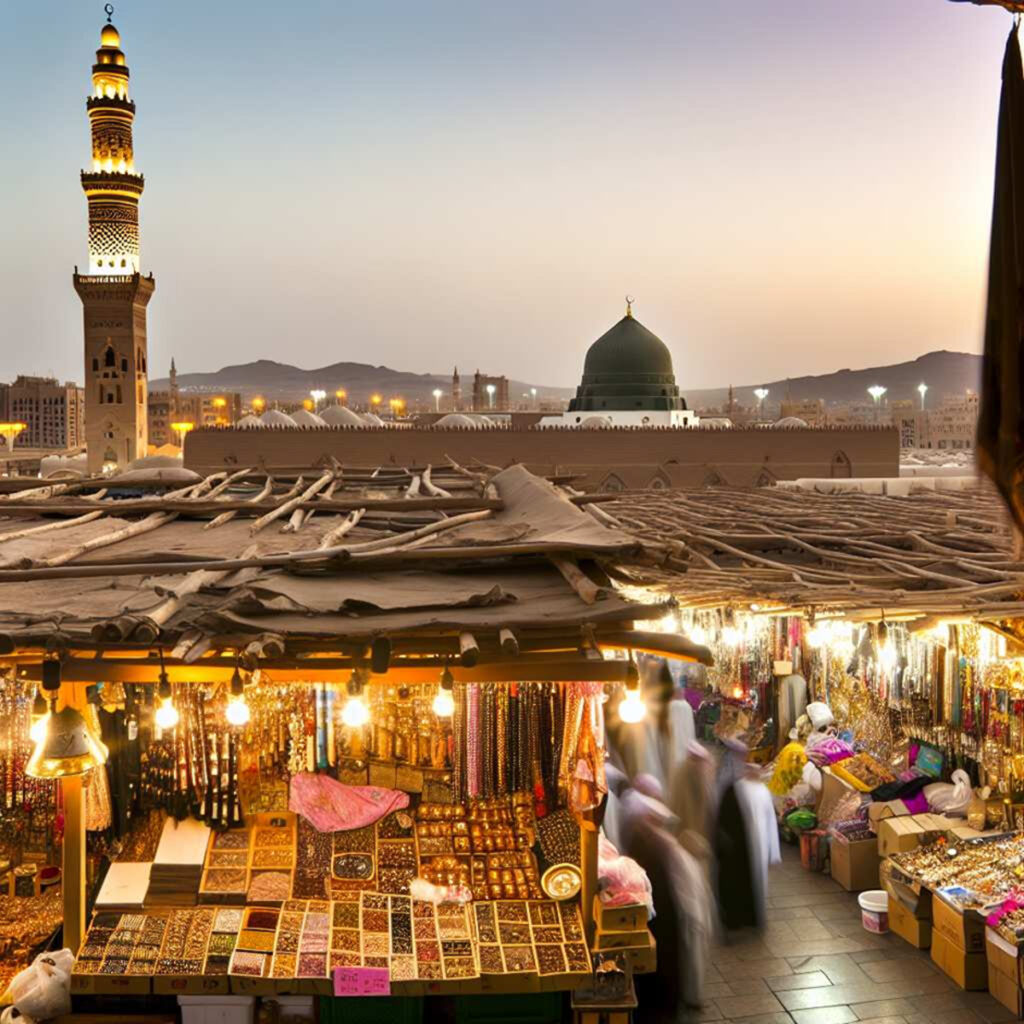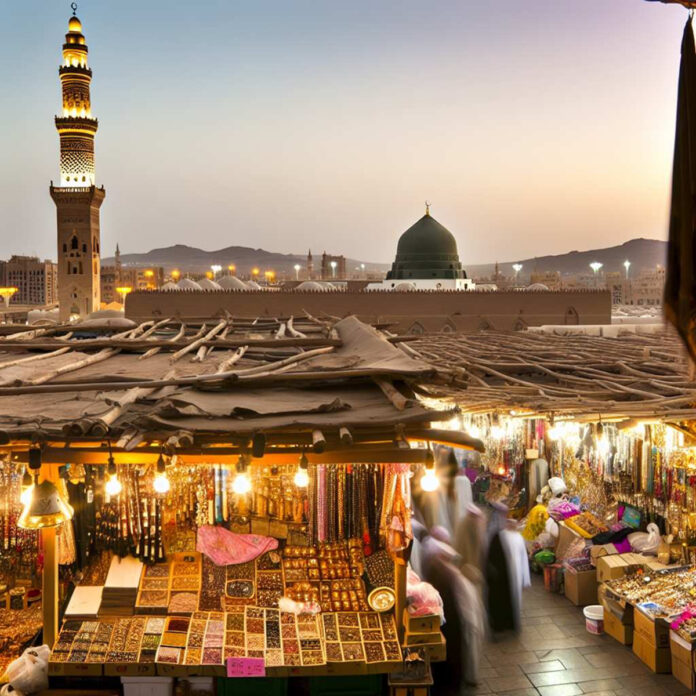Want to discover Medina with peace of mind? Follow our practical guide for a spiritual and hassle-free journey.

Practical health and vaccination advice for Medina
Importance of vaccination before departure
Before you fly to Medina, a spiritual center for many pilgrims, it is crucial to update your vaccination record. Indeed, certain vaccines are recommended to prevent possible health risks. If you are planning your trip to discover Medina, an update of your vaccination against hepatitis A and hepatitis B may be necessary. Vaccination against hepatitis A is carried out by an injection 15 days before departure and a subsequent booster to guarantee immunity.
Vaccination against hepatitis B is particularly important for long or repeated stays. Two injections spaced one month apart are recommended, followed by a single booster six months later. For those who require rapid immunity, an accelerated schedule may be considered with the authorization of a health professional. These precautions are essential for a trouble-free stay.
Meningococcal meningitis also poses a risk in the region, especially during large gatherings such as Umrah or Hajj. It is therefore imperative to have a certificate of vaccination with the tetravalent meningococcal vaccine, observing at least 10 days before entering the country. This is valid for both adults and children over 2 years old.
Food precautions and water quality
Medina is a region where hygiene standards are generally well respected, but taking certain dietary precautions remains recommended. Avoid consuming tap water and prefer sealed water bottles to prevent any infection. Food must be chosen with care, favoring establishments that present clear hygiene guarantees.
In this context, it is essential to ensure the quality and preparation of food. Fruits and vegetables should be washed with safe water or peeled before consumption. Meat and fish should be well cooked to avoid foodborne illnesses. Vigilance is required to fully enjoy your experience in Medina.
Paying special attention to the cleanliness of kitchen utensils and the freshness of products is a guarantee of safety for your health. Taking these simple but effective measures will allow you to enjoy the local culinary delights in peace while ensuring good health during your stay.
Protection against mosquito-borne diseases
Although Medina is not a malaria risk area, it is advisable to remain vigilant and take personal vector protection measures, especially if you are traveling to more rural areas or near the border with Yemen. The use of skin repellents, covering clothing, and mosquito nets are good preventive practices.
Dengue fever, a viral disease transmitted by mosquitoes, can occur in Saudi Arabia, especially in urban areas. Symptoms include high fever, muscle aches, and skin rashes. Prevention includes protecting yourself from mosquito bites during the day when the vector insect is active. Taking these precautions is essential to avoid any health complications.
If you experience symptoms such as fever after returning from your trip, it is urgent to consult a doctor, mentioning your recent stay in Medina. Even if this is an unlikely case, medical advice remains essential and should not be neglected.
Other vaccinations and preventive measures
Typhoid vaccination is recommended for those planning a prolonged stay or in precarious hygiene conditions. A single injection should be administered 15 days before departure for adults and children from 2 years old. Rabies is another disease preventable by vaccination, especially if you are planning a prolonged stay or if you will be in isolation.
Regarding influenza vaccination, past episodes of avian influenza (H5N1) and swine influenza (A/H1N1) in Saudi Arabia make this vaccination even more relevant, especially during epidemic seasons. Travelers should also ensure that they are up to date with vaccinations listed in the vaccination schedule, such as diphtheria-tetanus-polio.
Finally, be aware that specific requirements may apply to certain travelers depending on their geographical origin, particularly about yellow fever and polio vaccines. It is therefore essential to consult an international vaccination center to obtain personalized advice and update your vaccinations before departure.
Optimizing your route and transportation advice
Choosing the ideal mode of transportation from Makkah to Madinah
When it comes to traveling between the holy cities of Makkah and Madinah, the choice of transport mode plays a crucial role in optimizing your itinerary. The distance of nearly 450 kilometers can be covered in different ways, depending on your priorities in terms of time, comfort or budget. For those looking for speed and convenience, the Haramain high-speed train is the best option, taking only 2 hours to connect the two cities.
If you prefer the flexibility of traveling on your own schedule, renting a car or using your own is an attractive option, with journey times ranging from 4 to 5 hours. For a budget-friendly trip, long-distance buses offer a reliable alternative, although the journey can extend to around 6 hours depending on traffic.
In some cases, a flight may be considered, especially if you are arriving from abroad or have a tight schedule. This mode of transport is certainly fast but requires taking into account airport formalities and additional travel to and from airports. For a complete experience, also find out about the Practical guide to obtaining your Umrah visa for Saudi Arabia.
Tips for a quick and smooth trip
Planning is the key to a quick and hassle-free journey between Makkah and Madinah. Booking tickets in advance ensures peace of mind and often, better prices. It is advisable to inquire about peak days and times to avoid the influx of travelers during major religious occasions or holidays when transit times can increase considerably.
When you opt for a private car trip, being aware of current road conditions allows you to avoid areas with roadworks or traffic jams. Indeed, free road information sites are available to help you better plan your journey in real-time.
For users of public transport, such as buses or trains, checking the timetables and frequencies of departures can save you unnecessary waiting. In addition, traveling outside peak hours often guarantees you a more pleasant journey and sometimes even a fare reduction.
Reservation and pricing of different means of transport
Booking your trips can be done through different channels. The official websites of the transport companies are usually the most direct to buy your tickets. For example, for the Haramain high-speed train, the online platform offers easy and secure booking with various options of seats and travel classes.
It should be noted that prices fluctuate depending on the period and demand. Therefore, booking your ticket well in advance of the departure date can allow you to make substantial savings. Some transport companies even offer discounts for early bookings or group rates.
Travel comparison sites and travel agent sites can also reveal interesting deals, particularly for flights, where competitive prices between different airlines can work to your advantage.
Practical tips for international flights to Madinah
If you are traveling internationally, arriving in Madinah usually requires a transit through one of the major Saudi airports. Direct flights to Madinah Airport are not always available from all destinations, but connections via Riyadh or Jeddah are common.
To maximize your time, choose flights that best fit your schedule, taking into account jet lag and flight duration. Overnight flights are often less expensive and allow you to recover from the trip by sleeping, and arriving more rested.
Flights can vary greatly in price depending on the season, so it is advisable to monitor the variations to get the best rates. Up-to-date information can be easily found online on platforms specializing in flight comparison.


